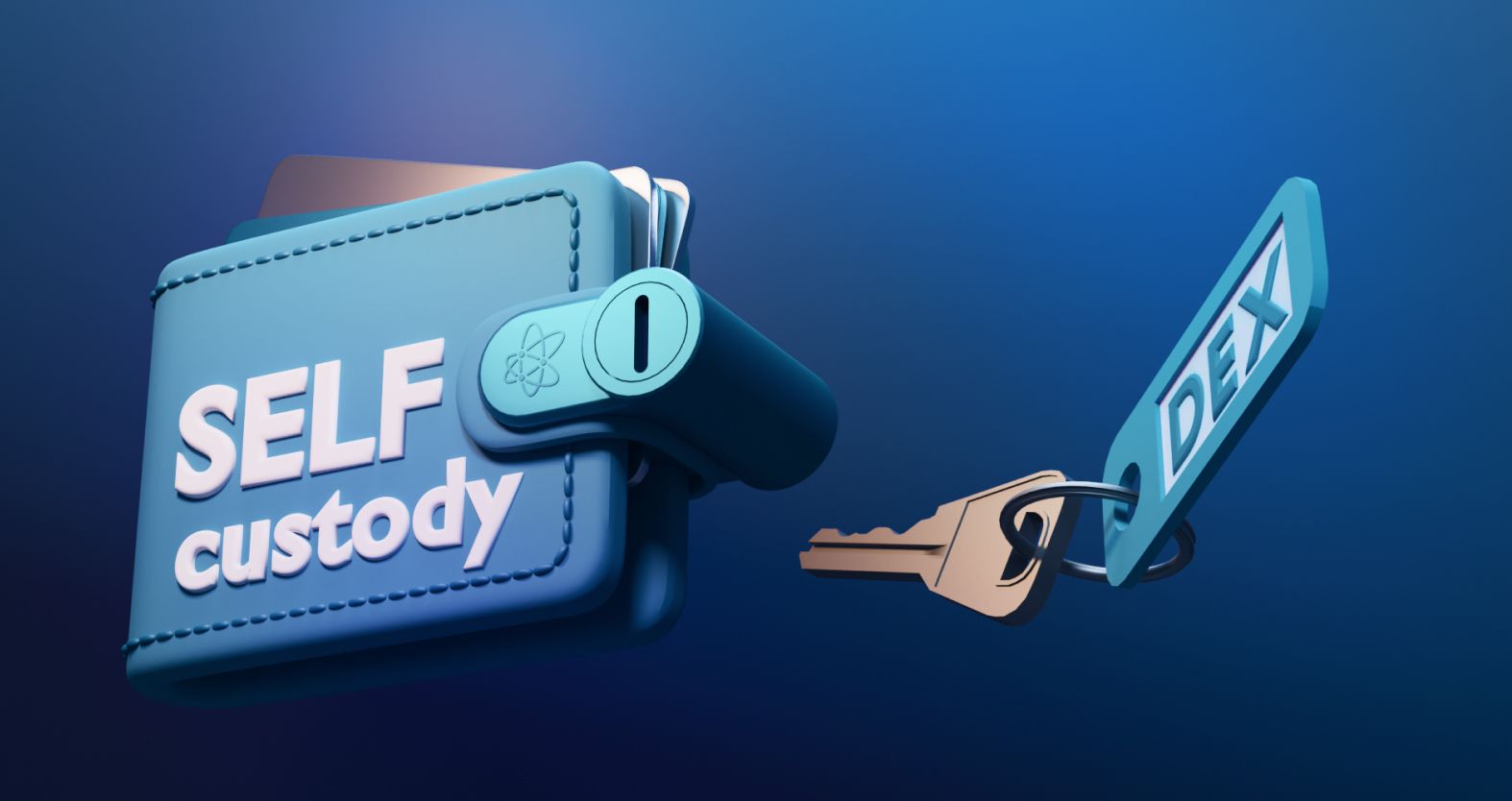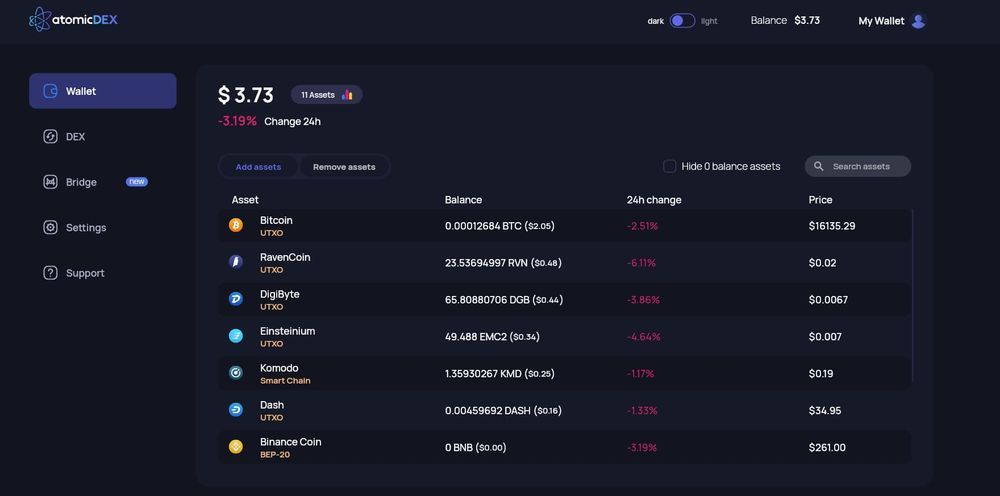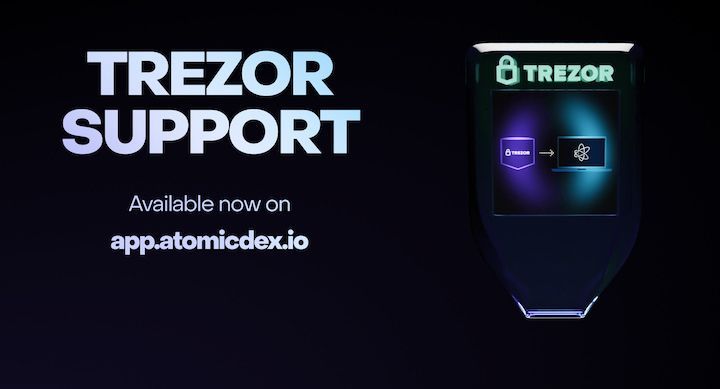20 January 2023
Updated: 20 January 2023
Self-Custody Wallets: The Ultimate Guide for Secure Crypto Management

Self-Custody Wallets
Table of contents
- What Is a Self-Custody Wallet?
- Custodial vs. Self-Custodial Wallets: Which to Choose?
- Types of Self-Custody Wallets
- Custodial vs. Self-Custody Wallets
- Is It Safe to Use Self-Custody Wallets?
- How Do I Check if I'm Using a Self-Custody Wallet?
- DeFi Opportunities Through Self-Custody Wallets
- Hold and Trade Crypto On AtomicDEX
Table of contents
- What Is a Self-Custody Wallet?
- Custodial vs. Self-Custodial Wallets: Which to Choose?
- Types of Self-Custody Wallets
- Custodial vs. Self-Custody Wallets
- Is It Safe to Use Self-Custody Wallets?
- How Do I Check if I'm Using a Self-Custody Wallet?
- DeFi Opportunities Through Self-Custody Wallets
- Hold and Trade Crypto On AtomicDEX
Self-custody wallets allow users to control their private keys and manage their assets, providing a secure and autonomous way to store and manage cryptocurrencies.
As the crypto space matures, the need for secure, decentralized, and reliable ways to store and manage these assets has become increasingly important. This growing demand for decentralized financial systems has led developers to create options for handling and transacting with crypto assets. The choice of a crypto wallet is a very vital decision to make when navigating within the crypto space. However, to embrace complete decentralization and self-sovereignty, the ideal option is a self-custody wallet.
What Is a Self-Custody Wallet?
Self-custody wallets, also known as non-custodial wallets, are cryptocurrency wallets that give users complete control over their private keys and crypto assets. Private keys are unique cryptographic codes granting users access to cryptocurrency assets stored within a specific wallet. They are an essential component of cryptocurrency wallets, as they are used to sign transactions and prove ownership of funds.
The user is responsible for generating, storing, and securing their private keys in a self-custody wallet. As a result, users have complete control over their funds, allowing them to make transactions and manage their assets without needing a third party. Self-custody wallets offer a high level of autonomy and control to the user, but they also come with a much higher level of responsibility.
Custodial vs. Self-Custodial Wallets: Which to Choose?
When selecting a cryptocurrency wallet, there are two main options: custodial and self-custodial. A custodial wallet is one where a third party, such as an exchange or online service, holds onto the user's private keys, therefore controlling their funds. This means that the user does not have direct access to their keys and must trust the third party to handle their assets responsibly. As the now famous cryptocurrency saying goes, "not your keys, not your coins".
On the other hand, a self-custodial wallet gives the user total control over their private keys, allowing them to complete autonomy over their funds. This means that the user has full control of their assets, making them solely responsible for wallet security.
When deciding between a custodial or self-custodial wallet, users must consider the level of control and autonomy they want over their funds. Crypto users who opt for self-custodial wallets must take time and effort to learn how to secure their assets properly. However, those who do not want this level of responsibility or do not have the time or resources to secure their wallets may consider a custodial wallet instead.

Types of Self-Custody Wallets
Several types of self-custody wallets are available, each with unique features and benefits. Some of the most common types include:
Mobile Wallets: Mobile wallets are cryptocurrency wallets that users access through a mobile app. These wallets are one of the most convenient types of DEX wallets because they help users perform transactions on the go in a user-friendly manner. However, they are vulnerable to potentially malicious activity if the user's phone gets lost, stolen, or hacked.
Desktop Wallets: Desktop wallets allow users to manage their cryptocurrency directly from their computers by downloading a desktop application. These wallets offer a higher level of security than mobile wallets because they are generally not as vulnerable to theft or loss (although this is not always the case). However, desktop wallets are not necessarily as convenient as mobile wallets and are only accessible from the specific devices they are installed on.
Hardware Wallets: A hardware wallet is a non-custodial physical device that stores and manages private keys for users. To use a hardware wallet, the user typically needs to connect it to a web app that allows them to send and receive cryptocurrencies via a centralized or decentralized exchange. If the user loses access to their hardware wallet, they can use a 24-word recovery phrase to regain access to their funds.
Web Wallets: Users can access web wallets via a web browser without downloading any specialized application. Web wallets ensure easy accessibility to crypto assets from any location, simply with a device and a web browser. However, they are also potentially vulnerable to hacking, and may not offer the same level of security as other types of wallets. Some popular examples of web wallets include MetaMask and MyEtherWallet (although MetaMask also has a wallet application available for download).
Custodial vs. Self-Custody Wallets
Custodial wallets are crypto wallets offered by centralized businesses or with centralized controls, such as wallets made available by crypto exchanges. These wallets provide certain benefits, such as relieving the user of the necessity to store and protect their own private keys. However, this also means the user must trust the business handling their assets to do so responsibly. When a user opts for a custodial wallet, they outsource the management of their private keys to the business, which becomes responsible for protecting and securing the wallet.
Users of self-custody wallets do not need to trust an institution to handle their assets and can manage their funds with total autonomy. This means that transactions made with self-custody wallets are censorship-resistant, as the user controls the private keys, and no third party can refuse or stop the transaction from taking place.
Is It Safe to Use Self-Custody Wallets?
The safety of a self-custody wallet depends on the measures taken by the user to secure it. Safety measures include creating strong and unique passwords, keeping their device and software up to date, and remaining cautious of phishing attacks and other cyber threats.
It is also important to note that self-custody wallets are not immune to losses or mistakes. If the user loses access to their wallet or makes a mistake in the wallet's setup, they may permanently lose access to funds. Therefore, it is crucial for self-custody wallet users to carefully consider the risks and be prepared for the possibility of loss if they don't know exactly what they are doing.

How Do I Check if I'm Using a Self-Custody Wallet?
To determine whether a wallet is self-custodial or custodial, it is necessary to identify who controls the private keys of the wallet. If the end-user has control and is responsible for securing and managing their keys, then the wallet is self-custodial. On the other hand, if a third party holds the private keys and controls the funds, then the wallet is custodial.
Users can determine their wallet type by reviewing the documentation or terms of service provided by the wallet or service provider. This should specify whether the user has control over their private keys. In cases where this information is unclear, the user can contact the wallet or service provider directly to ask about their key management practices.
DeFi Opportunities Through Self-Custody Wallets
Self-custody wallets have played a significant role in the growth and development of the cryptocurrency market, allowing users to take control of their assets and manage them with a high level of autonomy.
As the use of cryptocurrencies continues to evolve, the role of self-custody wallets in the crypto space will likely expand. Whether used for holding long-term crypto holdings or facilitating daily transactions, self-custody wallets offer a powerful and secure way for users to manage their assets and participate in a variety of crypto and DeFi opportunities.
Hold and Trade Crypto On AtomicDEX
AtomicDEX is a self-custody wallet, crypto bridge, and cross-chain DEX rolled into one app. It currently supports HODLing and trading for many popular cryptocurrencies, including BTC, ETH, BNB, DOGE, and much more.
Create your own AtomicDEX wallet to start HODLing and trading crypto.




